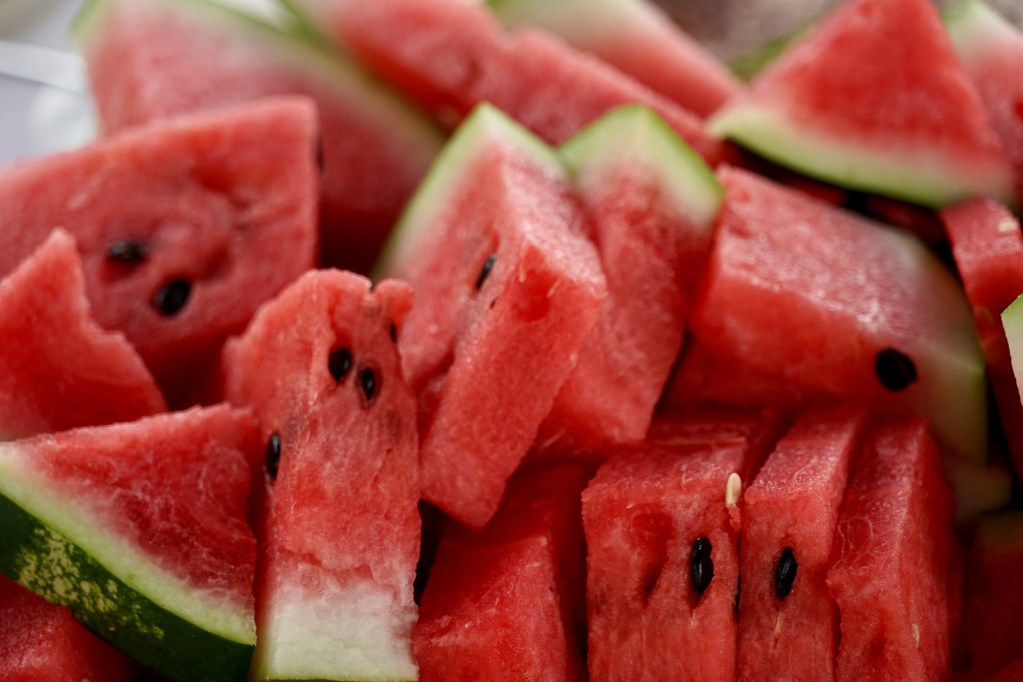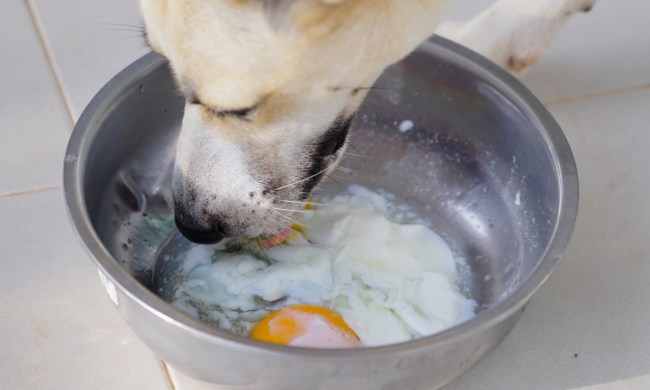
There are so many reasons to love the summer months, from longer daylight hours to delicious fresh produce. Many fruits and vegetables are in season when the weather warms up, and that means so many more ways to liven up a go-to meal. Some fruits, like watermelon, make a wonderful snack no matter how you prepare them, and it’s only natural to want to share this fruit with a begging furry friend.
But can dogs have watermelon? You may already know the answer, but this is what you need to consider before tossing your buddy a bite at the next summer barbecue.
Can dogs have watermelon? What you need to know

Considering that watermelon is mostly water, it’s easy to assume that this fruit is safe for canine consumption. And it is! As long as you take a few precautions, the flesh of the fruit is safe and delicious for dogs to eat. However, it can also get a bit messy.
Before feeding your dog watermelon, make sure to remove any of the large, black seeds that you see. Or better yet, buy a seedless watermelon. While consuming one or two of these seeds won’t harm your dog, they can cause a painful intestinal blockage if your pup swallows more than a few. Similarly, remove the flesh of the fruit from the rind before giving your dog a bite, as the rind can cause stomach upset if consumed.
Is watermelon good for dogs?

Many dog-safe foods taste delicious and pose no risk to their health, but that doesn’t mean they’re beneficial. However, watermelon can have one main benefit compared to other fruits and veggies — it’s super hydrating. Because watermelon is over 90% water, it can be a refreshing, hydrating snack during warm summer days, especially if your pup doesn’t drink a lot of water on their own.
Additionally, watermelon is low in sodium, calories, and fat. However, watermelon isn’t a good choice for every dog. Like many fruits, its high sugar content makes it a poor choice for dogs dealing with diabetes or obesity. Even if your dog is in perfect health, snacks like watermelon are still considered “treats” and should be fed in moderation.
It’s also important to note that just because melon is safe for dogs, it doesn’t mean that watermelon-flavored items are safe. Flavored snacks like candies and sodas are not safe for dogs to eat or drink, so don’t let the names of flavors fool you.
Fun ways to feed your dog watermelon

There’s nothing wrong with tossing your dog a bite of melon at the cookout, but there are an unlimited number of ways you can feed your hungry pup this yummy summer snack. Try freezing bite-sized pieces to give your dog a new, long-lasting texture to enjoy, or consider blending up watermelon to make your dog a canine-safe summer smoothie.
If you have a food dehydrator, you can even make watermelon “jerky” for everyone in the family to try. Each dehydrator works a bit differently, but in as little as a few hours, your pup will be chewing on a sweet and refreshing treat.
All in all, it’s hard to go wrong with eating watermelon on a warm summer day. Your pup will appreciate that you’re willing to share a bite (or two or three), and you can relax in the sunshine knowing that your dog is safe and healthy.



